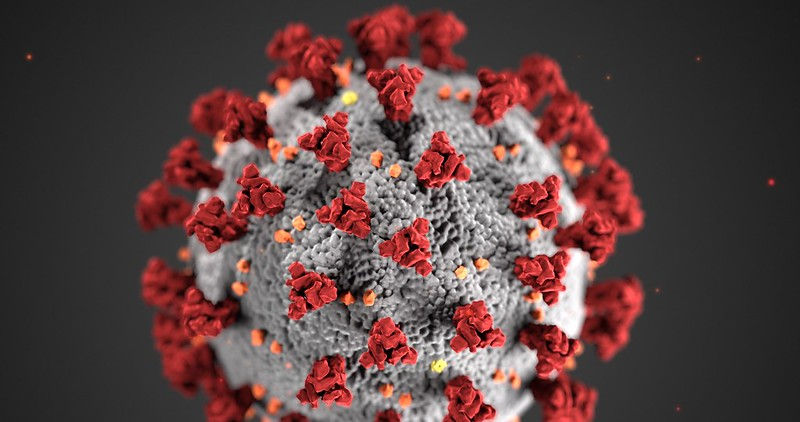Will corona virus help us save the planet?
- Science-by-Trianon

- Mar 15, 2020
- 3 min read
Updated: Apr 10, 2021

That sounds a bit like suicide for fear of death, and yes, you are right that given the economic and personal consequences of this pandemic the questions sounds a little stupid if not downright cynical.
But it is a fact that:
1. CO2 emissions have dropped drastically.
This low level is unprecedented.
Why?
Because in 3 weeks, the world's Nr. 1 CO2 emitter has seen a drop of 25% of their emissions.* Levels of nitrous oxides, a pollutant resulting primarily from burning fossil fuels, were down by as much as 30%.**
It is probably the first time in a while that people from the Wuhan province or Shanghai have seen a blue sky!
How cannot it be?
3,000 fewer flights a day originating from China (i.e. - 80%)*
Fewer cars on the street
All industries driving China’s economy in the region are shut down (manufacturing, coal, etc.)
While now all countries in Europe, Asia and soon the USA and Africa as well are taking drastic measures to prevent the spread of the disease, same effect on the climate could soon be seen all over the world.
2. Reducing CO2 and NOx emissions is improving the quality of air.
Air pollution kills 7 million people every year, because fine particle pollution enters the bloodstream through the lungs and can be linked to respiratory problems (such as asthma attacks) and coronary diseases.***
So any reduction in air pollution makes a difference!
3. Corona virus pandemic vs UN climate change conferences
The resolutions adopted (if any) by any of the UN climate change conferences (the last one, COP 25, was held in December 2019) rely on the good will of the 195 leaders to follow co-ordinated strategies to reduce emissions.
The takeaways of these conferences are often the same:
No unanimous consensus: in 2019, the leaders of the world could not agree on how to count their Nationally Determined Contributions (NDC).
No concrete worldwide actions to reduce harmful emissions has been agreed on
None of the actions agreed on during the previous editions (i.e. raising funds to finance energetic transition in developing countries) has been honored.
So the Corona virus pandemic has managed to achieve single handedly what none of the UN climate change conferences have managed before: a significant drop in harmful emissions.
4. Is it sustainable?
For many of us, UN climate change conferences seem to be a waste of money and a waste of time. In times when even representatives of states such as Germany stay away from them, nowadays a pandemic might be seen as an effective means, but it also costs an enormous amount of money.
UN climate conferences raises environmental and sustainable awareness.
The pandemic raises fear and the gain in the environmental heath is just a consequence of this fear.
In both cases a wide variety of changes are necessary, from how often you leave your home, to how you travel around the world, to how you do your shopping.
But while UN climate conferences counts on everyone's support and willingness to change, the pandemic makes us change, we have no choice.
My experience in corporations, in communication, and in change management, taught me that you won’t see any sustainable change without engagement of your stakeholders!
And this is what is precisely what is going to happen globally: When this pandemic will be over and the danger a thing of the past CO2 and NOx emissions will be as high as ever, probably even worse than last year at the same period.
5. What happens now?
The world did not manage to reduce its harmful emissions significantly until recently because, the end of the planet is not seen as imminent.
The world is seeing a significant reduction of its CO2 and NOx emissions today, because the end of humankind is seeing as imminent. (OK I am being a little bit melodramatic here.)
But a plan to reduce harmful emissions worldwide cannot look like this.
Borders are getting closed, people are isolating themselves, public life comes to a stand-still. This is, of course, the right thing to do, but it is, also of course, not sustainable.
So, what then?
The first thing would be already to have all readily available green innovations implemented at larger scale. If this was the case, I believe that the CO2 and NOx emissions worldwide would be significantly decreasing.
People are able to change, we have seen it.
People are able to think out of the box to support their own business or the businesses of others, we are witnessing it.
So let's not be afraid to change and adopt more sustainable behaviors.
* https://www.cbc.ca/news/technology/covid-19-coronavirus-climate-carbon-emissions-china-economy-1.5477466 [last accessed on March 14th, 2020]
** https://www.earthobservatory.nasa.gov/images/146362/airborne-nitrogen-dioxide-plummets-over-china [last accessed on March 15th, 2020]
*** DOI: 10.1016/j.scitotenv.2019.135523




Comments